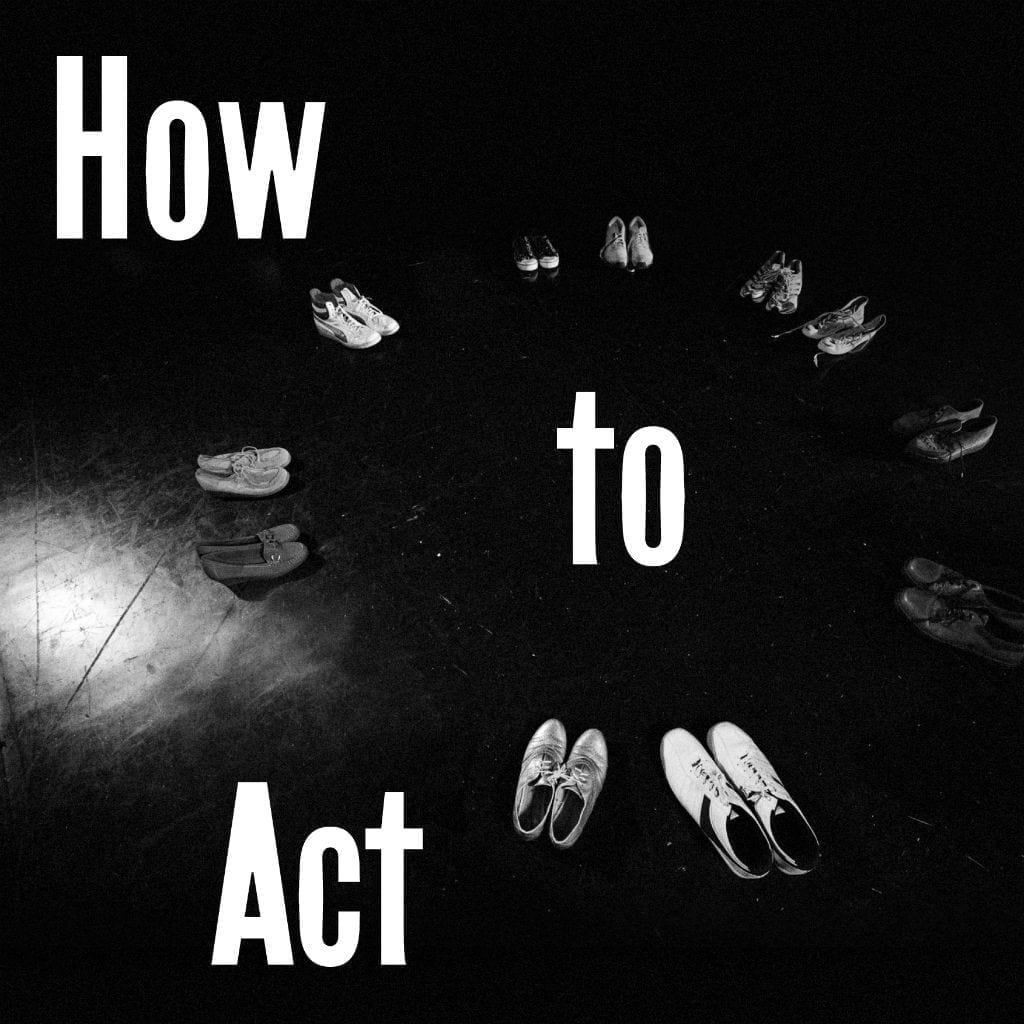 In this new creation, Graham Eatough revisits tragedy and the ancestral roots of theatre to weave a compelling exploration of conflict and domination, both dramatic and political.
In this new creation, Graham Eatough revisits tragedy and the ancestral roots of theatre to weave a compelling exploration of conflict and domination, both dramatic and political.
The official description of How to Act gives so little away I will try to do the same here. A world-renowned actor, Anthony Nicholl (Robert Goodale), gives an acting masterclass. His duo with Promise (Jade Ogugua), a young actor of Nigerian descent, turns into an intense face-off.
Robert Goodale revels in the role of Nicholl, who built his status as a magnetic theatre guru on a travel to Nigeria where he glimpsed the ‘truth’ of theatre. Jade Ogugua initially stares in fascination at the master, who opens his class with a declaration: ‘theatre is dead’, he claims, and we are the killers. While speaking, Nicholl starts gathering shoes from the audience, placing them in a circle which is meant to demarcate the space where theatre can take place. Goodale is simultaneously authoritative, inspired and, at first, mildly disruptive, as he asks his student to enter the circle and follow his instructions. Ogugua renders her character’s initial obedience and her subsequent dissent from Nicholl’s domineering style with perfect poise.
The play is a successful exercise in dismantling claims to transcendental ‘truths’, and is thorough in its demonstration of the mechanisms of power – of master over student, director over actor, white man over black woman, and Western countries over nations such as Nigeria. Nicholl’s story about his travels to Africa is soon revealed as the cliché that it is – the white man on a mission, encountering some kind of primeval truth on the ‘dark continent’. As this truth is exposed, more painful truths emerge – the exploitation of Nigeria’s resources by powerful Western companies, for a start. Nicholl’s masterclass turns into a very uncomfortable experience to say the least. The class becomes an agonistic exchange infused with references to other, more ancient scenes of confrontation that formed the core of the Greek tragedies that this play gestures towards.
By the end of the play, Nicholl’s core beliefs about himself and his craft have been put to the test and found wanting. Ours, as his students, have been equally brought into question.

